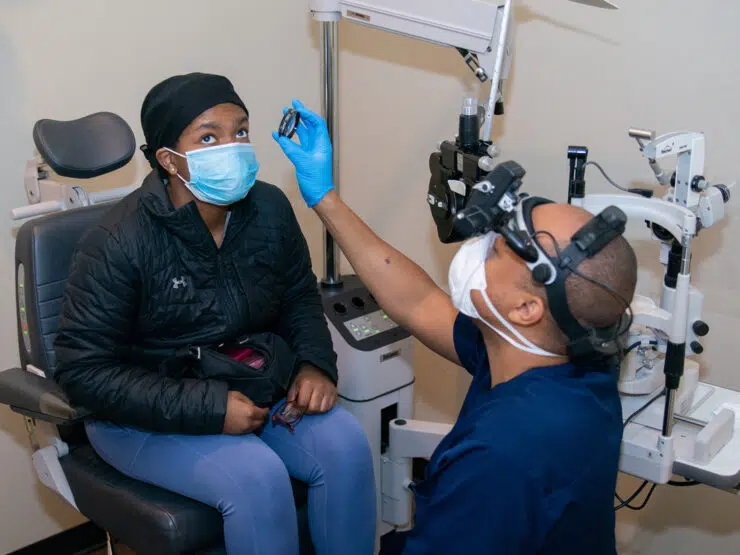

Although there are several types of glaucoma, overall, it is defined as a group of eye diseases that damage the optic nerve, usually because of high pressure in the eye. The patient cannot usually feel this elevated pressure, but it can cause significant vision loss and even total blindness over time. Knowing the risk factors, signs, and symptoms can help you take corrective measures before you suffer partial or full long-term vision loss.
Signs You May Have Glaucoma
Unlike many other eye diseases, primary glaucoma often exhibits few if any initial signs or symptoms. In most cases, vision is unaffected, and any noticeable loss of peripheral vision usually does not occur until much later when there has already been significant nerve damage. For this reason, patients need to get regular eye health exams so that the doctor can detect glaucoma in its early stages by checking the intraocular pressure and examining the optic nerve and visual field.
A less common but emergency type of glaucoma exhibits very high eye pressure and may have symptoms that should not be ignored. The symptoms would include eye pain, blurred foggy vision, nausea, and vomiting and are a reason to call your eye doctor immediately.
Risk Factors
Two of the most common risk factors for glaucoma are a family history of the disease and being over 50 years of age. Some groups, including African Americans, Asians, and Latinos, have an increased risk of the disease. Other risk factors include:
- Past eye injuries
- Thin corneas
- Diabetes
- High blood pressure
- Sickle cell anemia
Certain medications, both prescription and over the counter, can also increase your risk for developing this disease.
Screening
Untreated glaucoma can lead to complete vision loss. Examination for glaucoma is part of a comprehensive eye exam and is virtually painless. During the exam, your eye doctor may numb your eye and then measure your eye pressure with a device called a tonometer. The eye doctor will also test your peripheral vision and examine your optic nerve for signs of glaucoma. Be sure to tell your eye doctor about all medications you are taking.
Contact Simon Eye for Your Appointment
Because the damage glaucoma causes cannot be reversed, one of the best ways to prevent significant damage is to schedule regular eye exams.
If you develop any symptoms of glaucoma, schedule an appointment with Simon Eye.
Simon Eye has 9 locations in Delaware and one location in West Chester (Concordville), Pennsylvania. Please check the website or contact us today at (302) 239-1933.
Simon Eye’s single focus is helping you maintain excellent vision so you can achieve and enjoy all life has to offer.
Think you may have glaucoma?
Schedule regular eye exams with Simon Eye to prevent damage from glaucoma.

